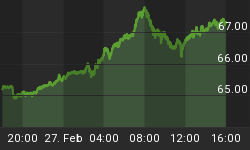On March 8, 2004 European central banks announced reaching a "collegial commitment" to renew the Washington Agreement of 1999, which was to expire in September, 2004. Under the terms of the commitment, participating central banks have agreed to raise their self-imposed limit on gold sales from the current maximum of 400 tonnes per annum to a new maximum of 500 tonnes per annum for the next five years. While contentious issues such as quota allocations for participating countries still exist, the parties are optimistic the agreement will be renewed prior to its expiry date.
The commitment to limit gold sales and leasing by all 15 of the original signatories removes some of the uncertainty regarding the future supply of gold. Collectively, the agreement signatories hold 14,395 tonnes of gold, representing 45 percent of official gold holdings. Another 13,437 tonnes is held by countries and agencies, including the U.S., which are unlikely to sell. The total of 27,832 tonnes represents 87 percent of official gold holdings.
This is a positive development for the long-term future of the gold market. The commitment to renew the agreement should put to bed any rumours of unexpected mass sales by the official sector, allowing the bull market in precious metals to proceed without any outside interference.
While the European countries hold nearly 40 percent of their reserves in gold, Canada has sold its entire holding of 1023 tonnes, making it the only G7 nation that has no gold backing for its currency. This has created the impression that all central banks have significantly reduced their gold holdings, and that gold has lost its monetary value. However, statistics show that official global reserve holdings have only declined by 4,611 tonnes in the past 33 years from 36,575 tonnes in 1971 to 31,964 tonnes at the end of 2003. Gold sales by Canada, Australia, Britain and Switzerland, among others, have been largely a global redistribution offset by purchases by France, Germany, China and Taiwan. The United States has maintained its holdings at about 8,000 tonnes.
Since both China and Japan hold less than 2 percent of their reserves in gold, there is a real possibility that they may increase their gold holdings in order to diversify out of the U.S. dollar and foreign debt instruments.
Japan is the world's largest holder of U.S. debt, and on January 27, 2004 its Finance Minister suggested that "it would be wise if Japan brought its gold holdings towards the levels more consistent with those of the other industrialized nations." This may be an early indication that Japan may be loosing confidence in the US dollar.
However, any rebalancing to match the 40% gold holdings of European countries would require far more gold than the 2,500 tonnes covered by the new agreement. With current holdings of only 765 tonnes, Japan would have to acquire 17,235 tonnes. This amount, of course, would be very difficult to acquire since it would represent over half of all of the official holdings.
Apart from some central banks diversifying out of US dollars into gold, global investment demand is also increasing. Demand from China alone is expected to increase significantly due its growing industrialization, and due to the ability of its citizens to purchase gold and silver bullion the first time in 50 years. The movement to re-establish the Islamic dinar, which is 100 percent backed by gold and silver, may also have a dramatic impact on overall demand
As global investment demand for gold increases because of uncertainties with respect to the U.S. dollar, the market will easily absorb the proposed central bank sales.















